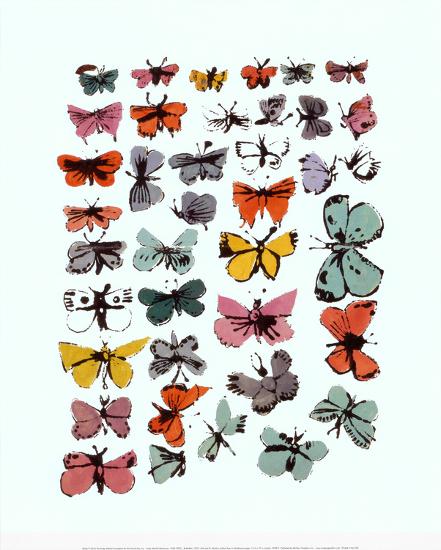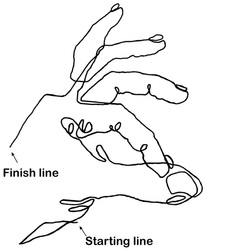GRADES 1-3 DAILY "BELL WORK" FOR WEEK SEVEN
Pablo Picasso
Le Gourmet (1901)
Pablo Picasso
Guitar (1913)
Pablo Picasso
Guitar (1912-1913)
Pablo Picasso
Le Gourmet (1901)
Pablo Picasso
Guitar (1913)
Pablo Picasso
Guitar (1912-1913)
GRADES 1-3 DAILY "BELL WORK" FOR WEEK EIGHT(upcoming)
All students complete "bell work" at the start of each class before any other instructions are given. As soon as students are seated, they are to immediately put pencil to paper and begin drawing the image projected before them; no questions, no comments; no distractions.
****(Kinder will begin doing bell work near the end of second quarter)
All attention is focused on looking carefully and recording what students SEE.
This is SILENT work time. Students are working independently, although I often interject with some guidance and state simple parameters. Students are graded primarily on their efforts and participation, not entirely on the outcome of their drawing.
After drawing, we have a brief class discussion to learn more about the artwork. We make some guesses at to what the work may be about; what the story may be behind the work. We THINK about how the artist used line, color, shapes, etc. to communicate meaning and emotion. We discuss how we may not all respond to the art work in the same way.
The final step in our Bell Work exercise is to ask ourselves more questions about the art work. We WONDER what the artist intended to communicate. This is where Ms. Northway may need to do some research to share what she learned about the artist and her/his life experiences.
I typically show students three artworks by the same artist. In this way, they become familiar with the style of a particular artist, and often can recall the artist's name. All of the children's drawings will be glued into small weekly/bi-weekly books to bring home.
PLEASE KEEP YOUR CHILD'S WEEKLY BOOKS IN A SAFE PLACE (and ordered in a BIG 3 RING BINDER) SO YOU CAN SEE GROWTH THROUGHOUT THE YEAR.
K-3 PROJECTS: WEEK 6
After bell work, students use sketchbooks for more extensive, ongoing projects.
KINDER
Elements of Art - Line, Shape, Color


They all did a great job with taking this cutting and painting their organic shapes.
Elements of Art - Line, Shape, Color
- Discussion/Review of Shapes from our project last week.
- Photographs of Matisse working in studio: drawing on walls with chalk; Cutting paper shapes; Ceramic wall mural
- Photographs of seaweed---Matisse's inspiration for shapes due to his stay by the seaside (as we read in the story)
- Organic/ Geometric Shape Review
- Finished cutting shapes and Painting shapes
The kinder students from all four classes will combine their cut out shapes to create a collaborative wall collage painting after Matisse's "La Gerbe." (below)
I am looking forward to having them paint these and put up for a room display next week.
A few of these will be on display in hallway and another arrangement of their shapes will remain on classroom/studio wall
A few of these will be on display in hallway and another arrangement of their shapes will remain on classroom/studio wall
FIRST
Elements of Art - Line, Shape, Color
We continued drawing hexagons to create a honeycomb pattern. Afterwords, we cut out a pre-printed equilateral triangle and folded in the three corners to make a hexagon. This was then glued into the students' "bell work books" to bring home.

After looking at many images of bee hives, we observed how sometimes the overall form of a hive can be very organic and irregular, in contrast to the interior geometric components of the structure.
(This last pic is actually waffles....just to see if kids are paying attention.....)
Students continued drawing hexagon shapes in sketchbook, this time, filling an entire page. On top of this pattern, we began drawing a honey bee.
In between drawing exercises, I shared some personal stories about growing up next door to a bee keeper/gardener. This was an elderly man who was a stand in for my grandfather. I shared my story of how one of my chores was to keep fresh water in the bird feeder for the bees. I quickly discovered that I could flick the bees into the water and then rescue them by letting them walk up onto my hand and arms. Walking around my backyard, with arms outstretched, I could wait for them to dry off and fly away. My point being, that bees are beautiful, important little creatures that we shouldn't be scared of. :)
GRADE 2
Elements of Art - Line, Shape, Color, Space
Each second grade class was assigned a butterfly to draw using black acrylic paint for the outline areas and oil pastels for the colors.
- Pipevine Swallowtail
- Eastern Tiger Swallowtail
- Painted Lady
- Monarch
The initial pencil drawing of the shape is made symmetrical by a simple monotype technique of painting over the lines from one side of paper, with black acrylic paint and then folding and pressing the paint onto the opposite side.
We have started to fill in the butterfly shapes with oil pastels, and will continue in the coming week. Once complete, a black backing will be glued on; butterflies attached to thread and hung from ceiling of my classroom.
Second graders did this last year as well and I love the idea of this being THE second grade project that the first graders look forward to doing. They are just lovely to look at as they slowly turn in the breeze of the air-conditioning ;)
Second graders did this last year as well and I love the idea of this being THE second grade project that the first graders look forward to doing. They are just lovely to look at as they slowly turn in the breeze of the air-conditioning ;)

Andy Warhol
Butterflies (1955)
Butterflies (1955)
GRADE 3
Elements of Art - Line
Students continued to work on Blind Contour Drawings of their hand, face and neighbor's facial features.
I am really taking this drawing exercise slowly this year to ensure that students really grasp this concept of blind contour drawing. It requires a lot of trust in their teacher and self-discipline. Students are learning the meaning of making a "drawing study" and how practice is necessary to "warm up" as if playing an instrument.
{ I have witnessed quite a few "light bulbs" start to flicker and turn on.....very satisfying :) }
A seriousness and focus is beginning to develop with each small successful line study, as well as a sense of accomplishment..........as I continue to talk on and on of the beauty in imperfection and the sensitivity and thoughtfulness of a delicate line.
A line drawing hand study will be made this coming week. It is my hope that students will be up for the challenge and have matured in their understanding of their own artistic and personal development.



Leonardo Da Vinci
Study of a Woman's Hand

No comments:
Post a Comment